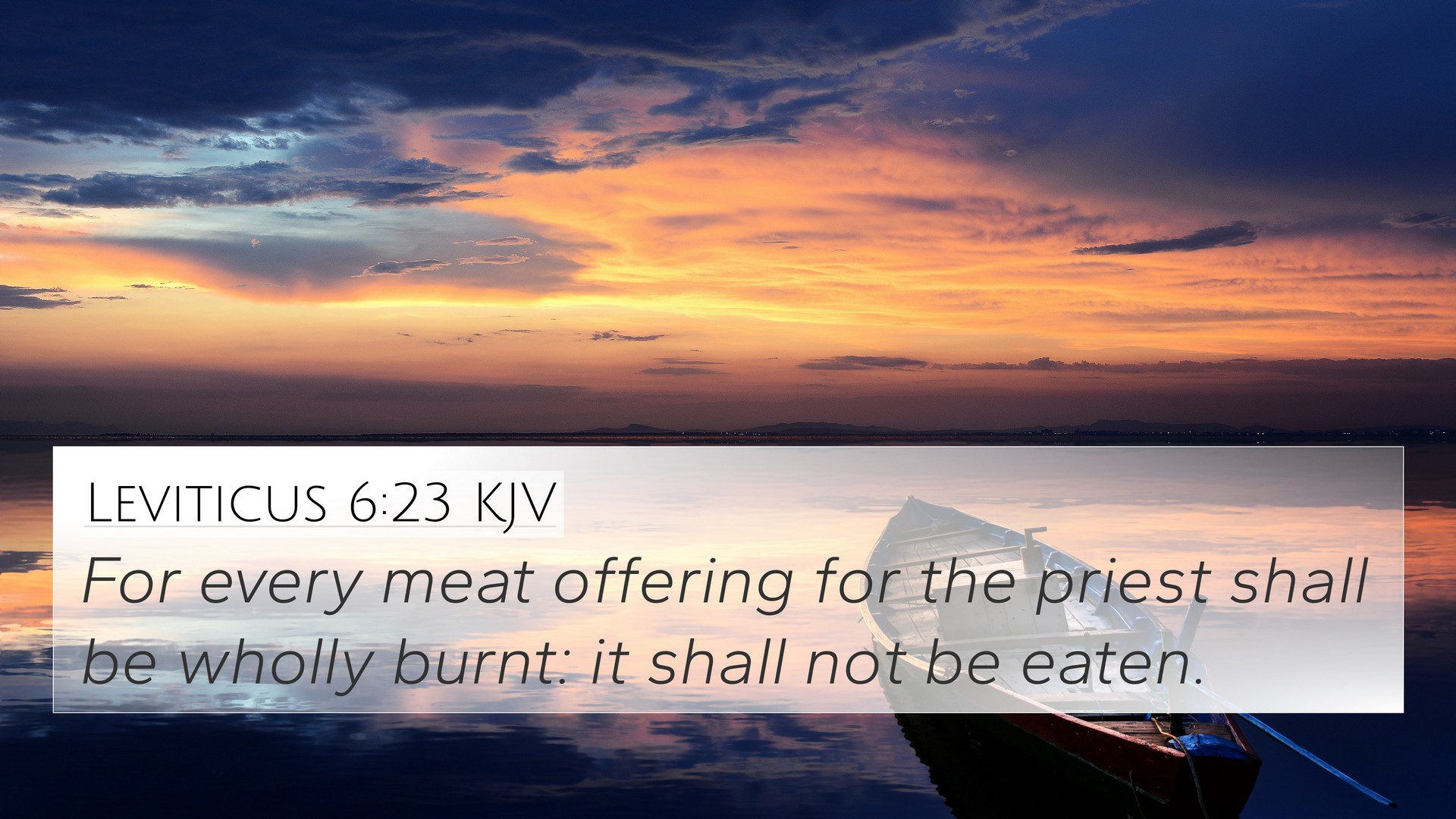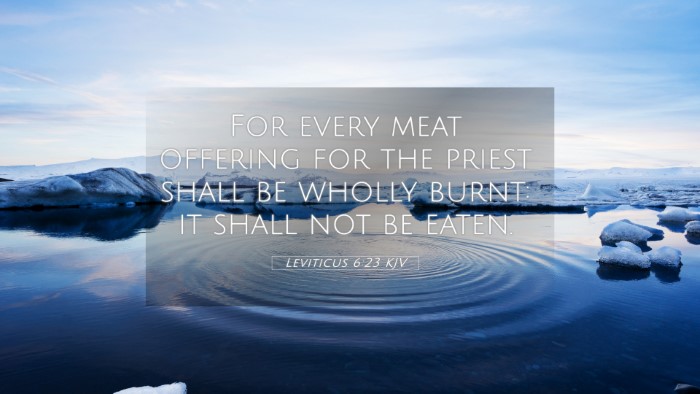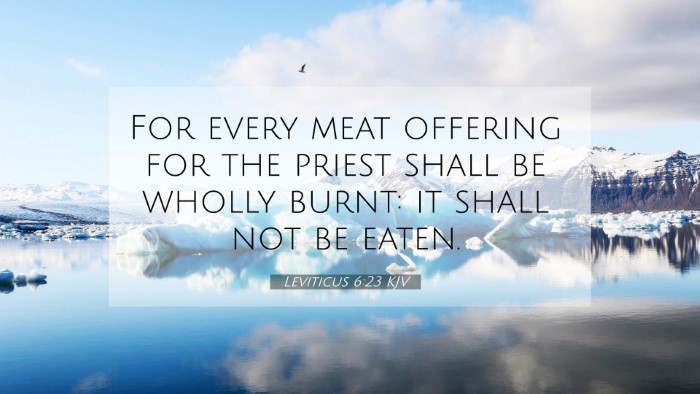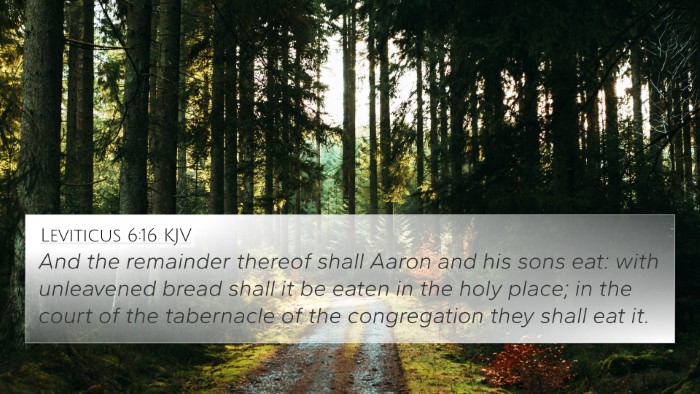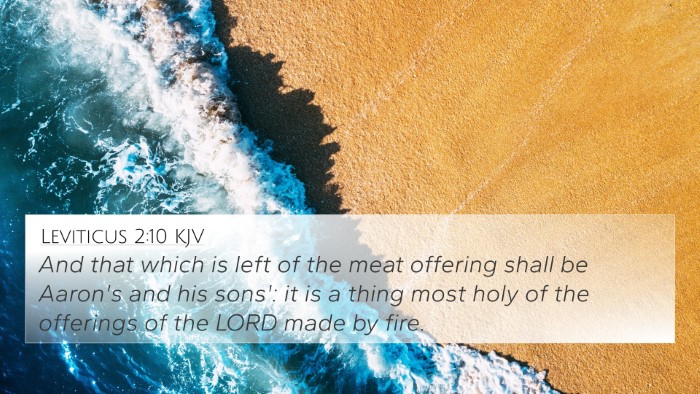Understanding Leviticus 6:23
Leviticus 6:23 states: "For every grain offering of the priest shall be wholly burned; it shall not be eaten." This verse encapsulates key themes of holiness, consecration, and the proper conduct regarding offerings in the Levitical law.
Summary of Insights from Public Domain Commentaries
The verse emphasizes the sanctity of offerings made to God and the necessity of complete devotion in worship. Let’s delve into the insights derived from popular commentaries:
Insights from Matthew Henry
Matthew Henry interprets Leviticus 6:23 within the broader context of the sacrificial system. He notes that the burnt offering symbolizes total surrender to God. The idea that an offering should not be eaten suggests that certain sacrifices were entirely to be devoted to God, indicating the importance of purity and holiness in worship.
Insights from Albert Barnes
Albert Barnes explains that this verse reflects a fundamental principle of the offerings made by the priests. He articulates that offerings required by the law were meant for God alone, emphasizing that only through complete dedication can one achieve a proper relationship with the divine.
Insights from Adam Clarke
Adam Clarke focuses on the specifics of behavior towards sacrificial offerings, interpreting the prohibition of eating the grain offering as a directive to maintain reverence for what is holy. He also highlights that these laws symbolize the complete surrender and devotion expected from God’s people.
Bible Cross-References
This verse can be linked to several other scriptures that enhance its meaning, offering a broader understanding of the themes present:
- Exodus 29:25 - Discusses how burnt offerings are meant to be a pleasing aroma to the Lord.
- Leviticus 1:9 - Shares the significance of burnt offerings as completely consumed by fire, symbolizing total dedication.
- Leviticus 2:10 - Relates to grain offerings and their consumption, reinforcing the idea of offerings set apart for God.
- Hebrews 10:14 - Speaks of Christ’s sacrifice, drawing parallels to the idea of complete offering.
- Romans 12:1 - Encourages believers to present their bodies as living sacrifices, akin to the offerings of Leviticus.
- 1 Peter 2:5 - Refers to spiritual sacrifices acceptable to God, linking New Testament concepts back to Levitical themes.
- Malachi 1:10 - Critiques unworthy sacrifices, reinforcing the holiness and seriousness required in offerings.
Thematic Connections
Leviticus 6:23 connects to several themes in the Bible, notably:
- Holiness: The exclusive nature of the offerings signifies the necessity of holiness in approaching God.
- Worship: Highlights the appropriate conduct in worship settings and offerings.
- Ray of Christ's Sacrifice: Prefigures the ultimate sacrifice of Jesus as fully consumed for our redemption.
Conclusion
Leviticus 6:23 serves as a reminder of the serious nature of offerings and the expectations laid upon God's people to honor Him through their acts of worship. The complete surrender symbolized in the grain offerings points toward a broader understanding of dedication, sacrifice, and the holy nature of communion with God. The cross-references provide a comprehensive backdrop for understanding how this particular verse resonates throughout scripture, creating a robust dialogue between the Old and New Testaments.
